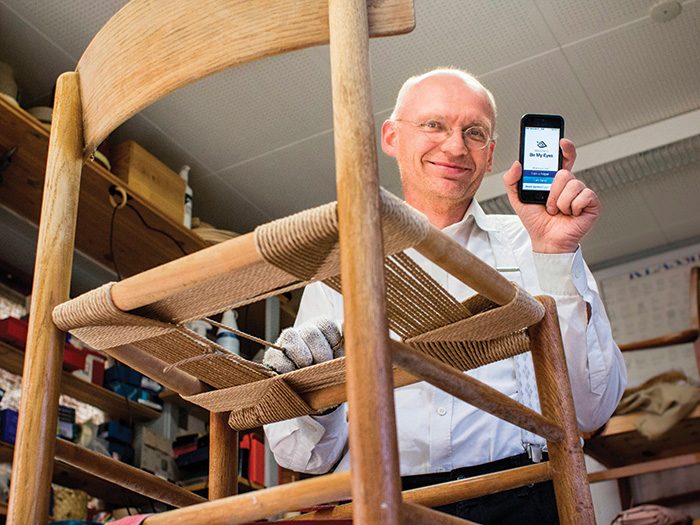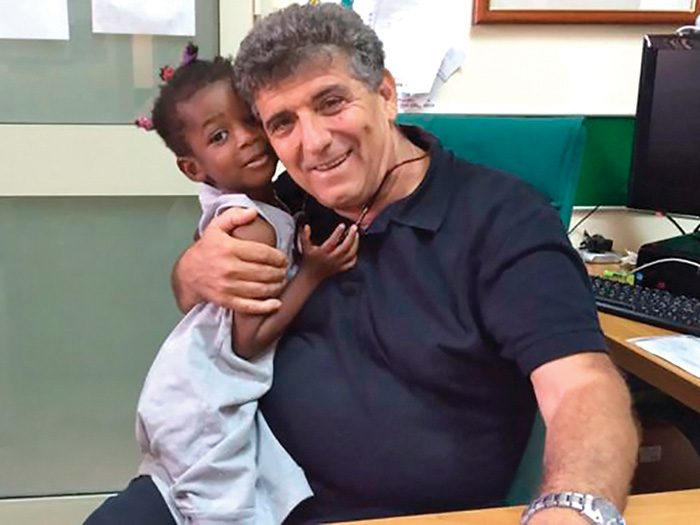Good News
Some of the positive stories coming our way

Help for the blind
Technology Aged 25, Danish craftsman Hans Jørgen Wiberg (pictured) was diagnosed with Usher syndrome, a disorder that causes hearing loss and visual impairment. Now 52, he is helping the blind to ‘see’ thanks to a clever idea.
While volunteering at a facility for blind and visually impaired people, Wiberg began to notice people using Apple’s FaceTime video facility on their iPhones to get help from friends or family when they were stumped by everyday tasks, such as checking the sell-by date of a carton of milk.
“I thought, ‘What if they could ask strangers for help?’” says the Dane. The result was a smartphone app called Be My Eyes that allows users to contact a volunteer on video and to get help whenever needed. There are currently 450,000 volunteers registered with the app, helping more than 30,000 blind and sight-impaired people.
“It’s a way to become more independent,” says satisfied user Anne Hansen, 50, a Copenhagen psychotherapist. “When I’m cooking, for example, I just call someone to say, ‘How does this look? Does it look done or does it need more time?”
Ending street-name sexism
Society When it comes to being remembered by a street name, women get a bad deal. Researchers have analyzed the gender balance of streets named after people in seven major global cities, including London and Paris, and found that only 27.5 per cent were named after women.
In Spain, it’s even worse: just five per cent of the nation’s streets are named after women, and they are mainly religious figures and saints. But since a change in municipal politics following the 2015 election, cities such as Bilbao, Oviedo and Cadiz now plan to rename streets that commemorate figures from the fascist Franco regime, instead calling them after leading Spanish female figures, including civil rights activists, scientists and novelists.
French road goes solar
Energy France has opened the world’s first solar panel road. The 1km stretch in the Normandy village of Tourouvre-au-Perche cost €5m and it is hoped the 2,000 motorists using it each day will produce enough power to light the street lamps for the local population of 3,400. Ecology minister Ségolène Royal has said she would like to see solar panels installed on 1,000km of French roads.

Heroes
Island’s doctor to the migrants Last summer, a picture of a 60-year-old Italian doctor and a nine-month-old Nigerian girl went viral on the internet. The doctor was Pietro Bartolo, director of the small hospital on the island of Lampedusa, south of Sicily.
The baby’s mother had died when their overcrowded migrant boat capsized in the Mediterranean. For Bartolo, this was sadly nothing new. In 20 years at the hospital he has seen more than a quarter of a million migrants pass through.
“All I know is that I’m a doctor, trying to do the right thing,” he says. “I do my best to heal their physical wounds, but one of my worries is not having the means to heal the psychological wounds.”
Sources: Technology: Good News Network, 26.11.2016. Society: City Lab.com, 23.11.2016. Energy: The Guardian, 22.12.2016. Heroes: BBC News, 29.10.2016



